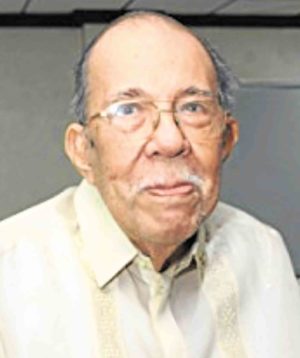First things first
It’s great to see that many new Filipino indie filmmakers are being trained to come up with significant and well-made movies—and are winning awards abroad.
But, it’s sobering to realize that quite a number of those director-producers are having a hard time getting their films distributed and exhibited, so that viewers can appreciate their creative products in cineplexes, beyond the limited purview of festivals.
In the real film world, distribution and exhibition are vital components to the filmmaking and -viewing process, so gifted moviemakers need to be schooled in those adjunct but essential disciplines,
as well.
Realizing the lack and need for practical training and enlightenment in this regard, Mowelfund and the National Cinema Association of the Philippines are holding a Seminar on Film Distribution and Exhibition on Thursday, Dec. 7, at Sampaguita Gardens, 36 Valencia St., Quezon City. (Call 727-1915).
The seminar will include valuable inputs and “how-best-to” tips from reputable experts like Bing Advincula, operations director, Robinsons Movieworld; James Bartolome, bookings and promotions manager, Ayala Cinemas; Christiana Caparas, general manager, Vista Mall Cinemas; Dominic Du, NCAP; JJ Jacob, booking manager, Warner Brothers; Maan Lopez, booking manager, SM Cinemas, and Ronnie Ronquillo, booking manager, Columbia Pictures.
Other essential seminars
Another aspect of the entertainment world that’s been overlooked is the training of talent managers, many of whom just start out as relatives of emerging starlets and learn the ropes of the similarly essential task on the job—sometimes, badly.
So, efforts are being made by another group to fill in the big and yawning blank by putting up another seminar, to be facilitated by veteran talent managers. More detailed info on this shortly.
While we’re at it, other aspects of the film craft and trade that newbies and even “risen from the ranks” oldies should get more and better training in include film editing.
Students and prospective filmmakers do get some instruction in this regard, but nowhere near enough for them to fully realize what a key element and strength it is in the filmmaking process.
In fact, some of the movie world’s best filmmakers started out as editors, like David Lean, George Lucas, Martin Scorsese, Robert Wise and John Sturges. (Their local counterparts include Joyce Bernal and Edgardo Vinarao, and National Artist Eddie Romero helped edit some of his movies.)
So, we hope that, in 2018, a film school or organization will hold a full in-depth and hands-on editing workshop, to train more prospective filmmakers to “see and ‘speak’ in the visual language of film.”
It will go a long way in reducing our movies’ excessive partiality to script and dialogue, over telling and dynamic images—which should be films’ stronger suit.
Even students who don’t end up as film editors can benefit a lot from learning how to tell a story in terms of dynamic images, instead of “caption-y” dialogue.
Spoken words are limited, because they are often too pat and predictable—while the power, breadth and depth of images are restricted only by the filmmakers and viewers’ unbounded imagination.



